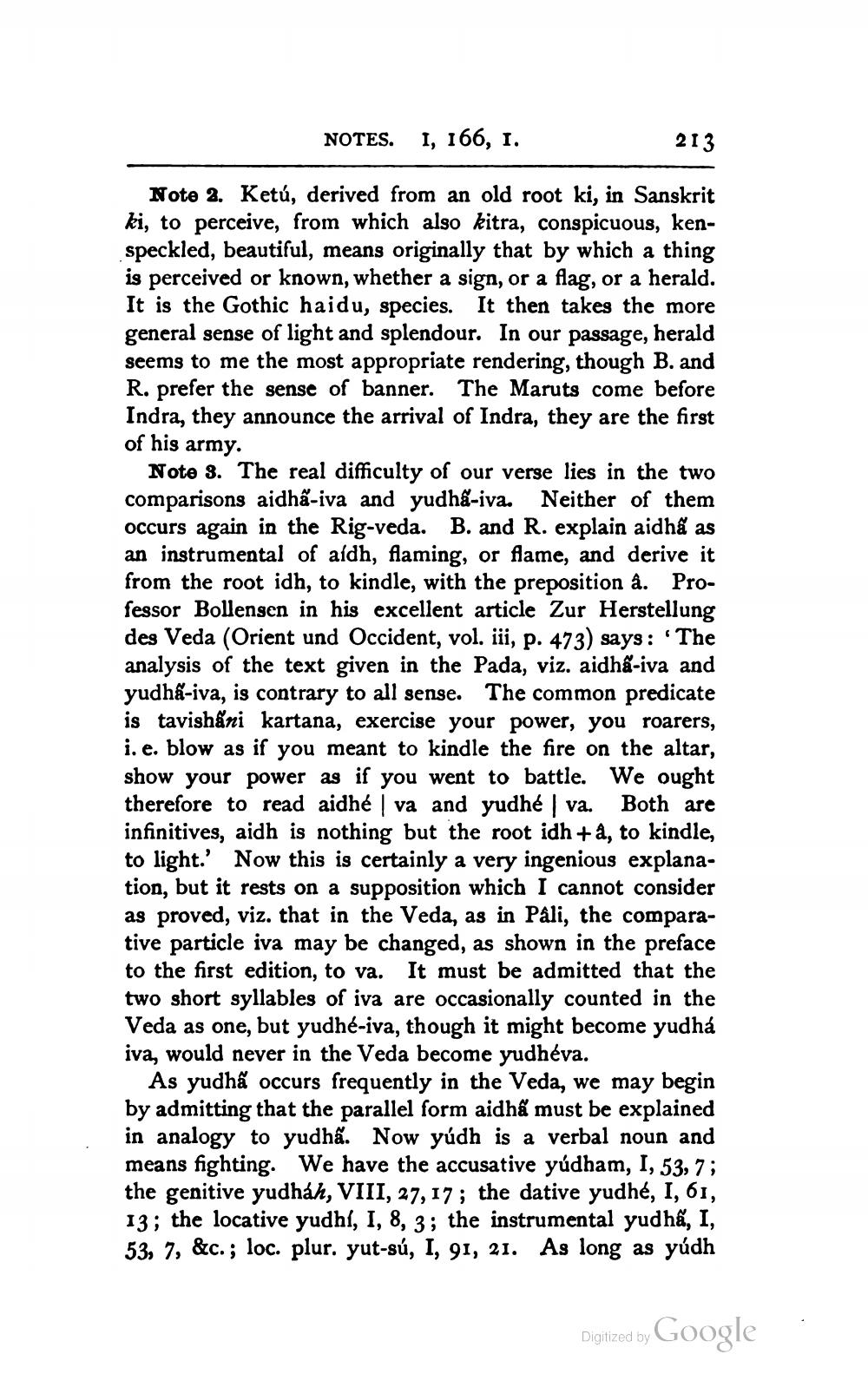________________
NOTES.
I, 166, 1.
213
Note 2. Ketú, derived from an old root ki, in Sanskrit ki, to perceive, from which also kitra, conspicuous, kenspeckled, beautiful, means originally that by which a thing is perceived or known, whether a sign, or a flag, or a herald. It is the Gothic haidu, species. It then takes the more general sense of light and splendour. In our passage, herald seems to me the most appropriate rendering, though B. and R. prefer the sense of banner. The Maruts come before Indra, they announce the arrival of Indra, they are the first of his army.
Note 3. The real difficulty of our verse lies in the two comparisons aidhã-iva and yudha-iva. Neither of them occurs again in the Rig-veda. B. and R. explain aidhå as an instrumental of aidh, flaming, or flame, and derive it from the root idh, to kindle, with the preposition à. Professor Bollensen in his excellent article Zur Herstellung des Veda (Orient und Occident, vol. iii, p. 473) says: 'The analysis of the text given in the Pada, viz. aidha-iva and yudha-iva, is contrary to all sense. The common predicate is tavishani kartana, exercise your power, you roarers, i.e. blow as if you meant to kindle the fire on the altar, show your power as if you went to battle. We ought therefore to read aidhé va and yudhé va. Both are infinitives, aidh is nothing but the root idh +à, to kindle, to light.' Now this is certainly a very ingenious explanation, but it rests on a supposition which I cannot consider as proved, viz. that in the Veda, as in Påli, the comparative particle iva may be changed, as shown in the preface to the first edition, to va. It must be admitted that the two short syllables of iva are occasionally counted in the Veda as one, but yudhé-iva, though it might become yudhá iva, would never in the Veda become yudhéva.
As yudhã occurs frequently in the Veda, we may begin by admitting that the parallel form aidhã must be explained in analogy to yudhã. Now yúdh is a verbal noun and means fighting. We have the accusative yudham, I, 53, 7; the genitive yudhah, VIII, 27, 17; the dative yudhé, I, 61, 13; the locative yudhi, I, 8, 3; the instrumental yudhã, I, 53, 7, &c.; loc. plur. yut-sú, I, 91, 21. As long as yúdh
Digitized by
Digitized by Google
.




